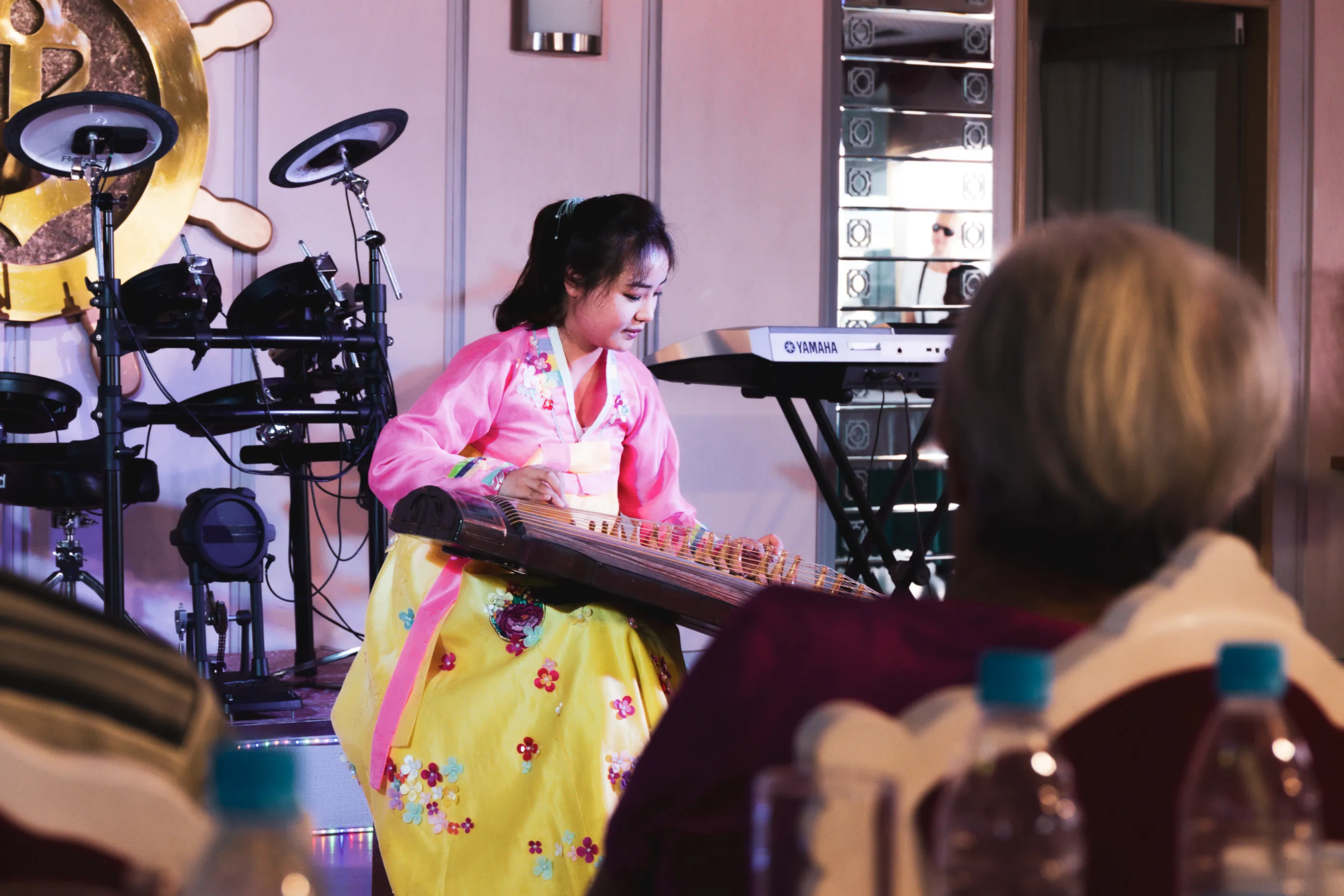4 days in North Korea
4th March 2020

Story
My trip to the DPRK was very eye-opening to say the least. I visited with many questions and left with more and with an unfinished taste. It was bittersweet and one of the most memorable trips that will stay with me forever.
For me, traveling is a luxury to unwind from a reality of exhaustion. It’s an opportunity to explore other realities and narratives different from what is shown in my echo chamber.
This is what drove my curiosity to travel to a place like North Korea and make my own judgement. It’s easy to forget the disparity between the regime and the people - and the impact of our prejudice has on thoughtful discussions.
The DPRK is enriched with a rooted history and preserves an ancient Korean culture to be explored further. The modern day perspective overshadows the history but I believe if there’s any hope of a reunification then we need to break the dated stigma, learn as much about the people and the country from another lens in the modern day.
FAQs
How did I get in?
Visiting the DPRK requires a visa approved by the State. Fortunately for me, I have a good mate who runs a North Korea tour operator, Uri Tours, and he pretty much orchestrated the whole thing.
I paid and filled out some details for the tour and the last step was to arrange a flight to Beijing. From Beijing, I would then fly into Pyongyang via a flight booked months in advance by the operator. All guides, hotels, food, itinerary and tickets were pre-arranged. Simple.
Was everything guided?
Yes. From the moment you land in DPRK - you are guided around the country and you are encouraged not to depart from the group or itinerary.
You will see clear flaws in their political bias based on your own exposure to international media. The trope “you will only see what they want you to see” does not hold much weight because it’s vastly different to what you hear on media outlets like Vice - and that is only through the indirect exposure to the many things that surround you.
Another reason that you should not wander off in your own journey is out respect for the guides. You are their responsibility and if you were in trouble with the state whilst on their watch - then they too will be ridiculed and probably their tour operator in effect. Simply put, don’t go chasing conspiracy theories and be respectful during your stay.
Could you take photos?
Hero banner says yes. I had no issues with taking photos whenever I felt it was appropriate. I was never told off or had my camera checked. Even taking photos of the locals seemed fine - but if it was too overt then you should just ask for permission.
There are some general rules:
-
No photos of military (can ask permission)
-
Do not take photos of construction sites
-
Capture the entire monuments of the Great Leaders (ie: no cropping of body)
You can try sneak some shots but it is risky and can be uncomfortable. If spotted, the guides may request that you delete the photo - which will also make you less popular with the guides and the tour group. I just needed to ask first whenever I was unsure and it was fine.
There are some places that have full photo restrictions like in the Victorious War Museum, Supermarket and International Friendship Exhibition to potentially avoid viral scrutiny.
What could you bring in?
The tour operator will remind you on a list of things not to bring:
-
No religious materials (Bibles, Quran)
-
No written or digital material regarding Korea (North or South) ie: Lonely Planet
-
No lens with a focal length greater or equal to 150mm
-
No clothing with political slogans
-
GPS-specific devices
-
No drones
If you bring any of these, you are at your own risks. They will simply be confiscated - someone in the past has had their laptop taken because it contained some of these materials in there.
Does tourism fund the regime?
Not directly and not nearly as much as you’d think. Your money like anywhere else will eventually filter it’s way into the economy - whether that is to pay the tour operators, hotels, petrol, guides, drivers and restaurants.
DPRK tourism operates under the State but is run by foreign language experts at a profit. There are several tourism operators in DPRK that compete against each other - PKITC being one of them. The majority of your money will very much go into the livelihood of the people organising and running the tour.



